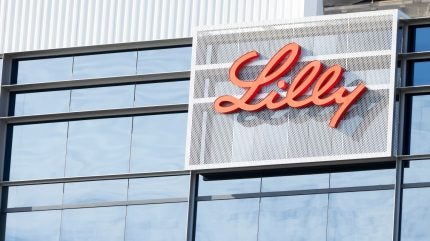
Eli Lilly has reported promising results from the Phase III VIVID-1 study of mirikizumab in treating moderately to severely active Crohn’s disease.
The randomised, treat-through, double-blind trial assessed the safety and efficacy of mirikizumab versus placebo and ustekinumab, an active control.

Discover B2B Marketing That Performs
Combine business intelligence and editorial excellence to reach engaged professionals across 36 leading media platforms.
It enrolled Crohn’s disease patients irrespective of their previous biological failure status.
Trial data revealed that mirikizumab achieved statistically significant and clinically meaningful improvements across various endpoints at one year when compared to placebo.
The therapy met both co-primary endpoints and all major secondary endpoints in week 52.
A higher proportion of patients in the mirikizumab arm achieved clinical response by patient-reported outcomes at week 12 and clinical remission at week 52, as well as endoscopic response, compared to placebo.

US Tariffs are shifting - will you react or anticipate?
Don’t let policy changes catch you off guard. Stay proactive with real-time data and expert analysis.
By GlobalDataThe response rates and treatment effects were consistent among bio-naïve patients and those with prior biologic failure.
Notably, 54.1% and 48.4% of patients treated with mirikizumab achieved clinical remission and endoscopic response, respectively, at one year.
When compared to ustekinumab, patients on mirikizumab showed higher rates of combined clinical remission and endoscopic response, especially among those with prior biologic failure.
Mirikizumab also demonstrated nominal statistical significance over ustekinumab in reducing inflammation biomarkers at week 52, although it did not show superiority in endoscopic response.
The safety profile of mirikizumab was in line with the data already reported on ulcerative colitis patients.
Covid-19, anaemia, and injection site reactions were reported to be the most common adverse events in the trial.
The company filed a supplemental biologics licence application for the therapy to treat Crohn’s disease with the US Food and Drug Administration and the European Medicines Agency.
Eli Lilly Immunology development senior vice-president Mark Genovese said: “After one year of treatment, more than one-half of patients treated with mirikizumab achieved clinical remission and nearly one-half achieved endoscopic response. Remarkably, the majority of patients who achieved either of these endpoints achieved both together.
“Lilly is committed to developing innovative treatments, like mirikizumab, that may improve upon the standard of care for people impacted by inflammatory bowel disease and immune-mediated diseases.”





